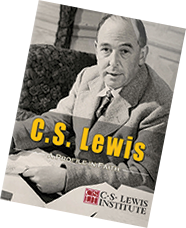Back to series
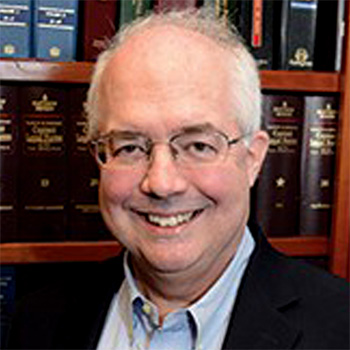

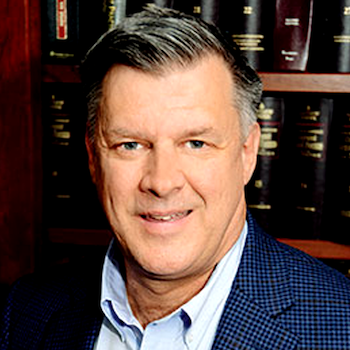

Recommended Reading:

Celebrating Forty Years of Heart and Mind Discipleship
Click here to open a Print - Friendly PDF
A Beginning through Friendship and a Commitment to Discipleship
The C.S. Lewis Institute (CSLI) was founded in the Washington, D.C., area in 1976 by James R. Hiskey and James M. Houston. The two cofounders came from very different backgrounds but shared a love for Jesus Christ and a desire to see believers thoughtfully living out their faith in their professional and personal lives.
Hiskey was a former PGA Tour player and a golf pro. He had been a cofounder of the PGA Tour Fellowship and founder of the Links Letter, which published the testimonies of PGA players and their wives. Hiskey had come to the Washington metro area to work with the National Prayer Breakfast and was involved in founding Cornerstone, a small community of believers in College Park, near the University of Maryland. Hiskey had visited Francis Schaeffer at L’Abri and was powerfully influenced by the experience.
Houston, an academic who had earned his D.Phil. at Oxford University, was the Principal of Regent College in Vancouver, British Columbia, which described itself as “the first graduate school of theology in North America to make education of the laity its central focus.”1 Houston had previously been University Lecturer at Oxford, where he taught from 1947 to 1971.
The beginning of CSLI can be traced back to a visit Houston made to the University of Maryland in the fall of 1971. He visited Cornerstone, which was just getting started, and spoke to numerous students and faculty members. He “encouraged the community to consider the possibility of developing an institute of biblical studies designed for both lay people and those in full-time Christian ministry,”2 an adaptation of the L’Abri model developed by Francis Schaeffer. This concept would lead to the founding of CSLI.
Some period of time lapsed after Houston’s visit before much happened. Hiskey remembers receiving a telephone call from Houston who was sitting with John Stott in London. Houston reported that Stott was willing to come help get things started with a Summer Studies Institute, and Houston asked Hiskey if he wanted to go ahead. Hiskey recalls replying, “Sure, let’s go.”3
The Early Years of the Summer Study Institute: 1976–1979
CSLI, initially called the Summer Study Institute, was inaugurated in June 1976 with a three-week academic program in College Park, Maryland. The Institute offered five classes taught by an impressive faculty of internationally known Christian scholars and leaders such as Houston, John R.W. Stott, J.I. Packer, James Montgomery Boice, R.C. Sproul, Sen. Mark Hatfield, and Chuck Colson! One hundred and seventy people enrolled for the Institute’s 1976 program,4 which also included chapel services and some evening activities.
The informational brochure for the 1976 program stated that the Institute “will seek to assist the student in formulating a worldview that integrates professional training with the Christian faith, in the context of a community of believers studying and worshipping together.”
5The first summer Institute was later described as “a success beyond expectation,”6 and the Institute would offer summer study programs at the University of Maryland for three additional years. Again world-class speakers taught, including Carl Henry, Edmund Clowney, Richard Halverson, Earl Palmer, Norman Geisler, and Os Guinness. Classes dealt with the themes of Science and Faith, the Christian Mind, and Christian Apologetics.
In the informational brochure for the 1979 summer program, the name C.S. Lewis Institute was used in place of Summer Study Institute. The organization had been incorporated shortly after the initial 1976 summer program as the “The C.S. Lewis College for Bible and Theological Studies, Inc.,” and the name would be officially amended to “The C.S. Lewis Institute, Inc.” in 1995.
A question is sometimes asked: why was the Institute named after C.S. Lewis? Houston has explained that the name was chosen as a representation that summarized the mission of the Institute, “to create not a lot of fans for C.S. Lewis but to have 10,000 like him.”7 Houston added that this would involve engaging with culture, including the political and cultural life, but from a boldly Christian apologetic. He noted Lewis’s BBC broadcasts that were the basis for the book Mere Christianity and cited Lewis as “representing an apologetic voice in Western culture.” Houston also explained that Lewis was a model for the Institute’s vision, encouraging people to take their faith to the same level of competence and intelligence as Lewis.8
Hiskey noted that the name was chosen because C.S. Lewis modeled the kind of discipleship that is the vision of the Institute, that is, that of head and heart, faith and vocation; the name also would be recognized and stand up on the college campus.9 There was also a personal connection in naming the Institute after Lewis, as Houston had known Lewis at Oxford and had been part of a discussion group with Lewis that met monthly for six years.
The 1979 CSLI summer session brochure explained the future vision for the Institute as follows:
the Lord will not cast off forever, but, though he cause grief, he will have compassion according to the abundance of his steadfast love; for he does not afflict or grieve the children of men (Lam. 3:31–33).
His hope in God’s goodness, grace, and love grew stronger:
Beginning with these summer programs, the long term goal is to establish a year-round institute… It will provide a serious introduction to Biblical studies for those without formal theological training, and a continuing education for those already active in Christian work.10
Many people in addition to Hiskey and Houston were actively involved in the early years of CSLI, all of whom worked as volunteers. Other very early organizers and planners included Hiskey’s wife, Lorraine, Rich and Kathy Gathro, Paul and Kathy Arveson, Bob and Carol Hamrin, and John and Marge Bernbaum. Key volunteers included Ron and Bea Jenkins, Mike and Jenny Cromartie, John and Sue Seele, Bill St. Cyr, Sandy Sharpe, and Jane Gilmore.
Paul Arveson began recording CLSI classes in 1979, initially made available for sale on cassette tapes. Many of the early recordings are “legacy recordings” available through CSLI’s website, where they can be listened to or downloaded without charge.
The early leaders of CSLI considered many issues about the specific nature and organization of the ministry. One early issue was whether the Institute should seek to provide a theological base for the National Prayer Breakfast movement.
A Shift toward the Local Churches: 1980–1987
In 1980, after considerable discussion, there was a shift in focus by the Institute, as it moved its programs away from the University of Maryland to a variety of locations, mostly churches, around the greater D.C. metro area. The goal was to have a greater impact on the lives of Christian professionals working in the nation’s capital. Between 1980 and 1985, the Institute conducted a variety of summer studies programs, seminars and symposia on biblical studies and in areas of public policy that involved issues of morality and ethics.
Institute events took place in Presbyterian, Episcopal, and Baptist churches, at Fellowship House, Cedar Point Farm, and at public venues such as the Brookings Institute. Again high-rated speakers headlined the offerings, including J.I. Packer, Charles H. Malik, former president of the United Nations General Assembly, Jim Houston, Becky Pippert, Earl Palmer, and John Stott.
Throughout its first decade, the Institute relied on volunteers to plan and implement its programs with the exceptions of Ron Jenkins, who served as a part-time executive director in the early 1980s, and Kathy Arveson, who served part time as administrative assistant. During the mid-1980s, organizers debated whether to stay the course with programming or develop into an organization modeled after a think tank.
As a result, there was a one- to two-year hiatus in Institute activities, after which the Hiskeys, Arvesons, and Hamrins resurrected it. In a serendipitous moment, John Bernbaum met Art Lindsley at a theological meeting at Eastern College and referred him to the CSLI leadership committee, which would lead to a new chapter in the Institute’s history.
Hiskey stated that the Institute always sought to do God’s work, God’s way, and trusted that God would supply. He noted that the leaders of the Institute were always trying to find the right niche, doing things that others couldn’t or wouldn’t do.11
Mentoring, Apologetics, and Theological Training: 1987–1998
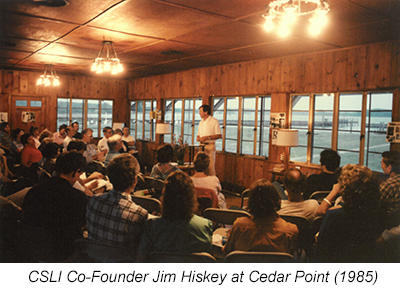 When he met Bernbaum, Lindsley was already familiar with CSLI. He had attended one of the summer study programs, hearing lectures by Carl Henry, among others. Lindsley attended the program because he wanted to “vacation with purpose.”12 Lindsley had been on the staff at R.C. Sproul’s Ligonier Valley Study Center for six years and had been Director of Educational Ministries for that organization. He was currently working for the Coalition of Christian Outreach, but he hoped to do something more like L’Abri or Ligonier Valley, with a retreat center outside of a city as well as city programs.
When he met Bernbaum, Lindsley was already familiar with CSLI. He had attended one of the summer study programs, hearing lectures by Carl Henry, among others. Lindsley attended the program because he wanted to “vacation with purpose.”12 Lindsley had been on the staff at R.C. Sproul’s Ligonier Valley Study Center for six years and had been Director of Educational Ministries for that organization. He was currently working for the Coalition of Christian Outreach, but he hoped to do something more like L’Abri or Ligonier Valley, with a retreat center outside of a city as well as city programs.
After interviewing Lindsley, Hiskey immediately invited him to come to D.C. and serve as the scholar in residence of the C.S. Lewis Institute, albeit without a salary. Fortunately Lindsley had financial supporters who were committed to his ministry. Lindsley would also have the title of President.
Stan Rosenberg would join Lindsley and serve as the Academic Programs Director between 1987 and 1996. Katherine Doster came to the Institute in 1993 and served as public liaison, volunteer coordinator, and women’s mentor for four years. Dan Painter served as Executive Director of CSLI between January 1997 and January 1998.
Personal Mentoring
One focus of Lindsley’s ministry during his time as President was personal mentoring. He regularly met with individuals on Capitol Hill with the goal of helping them integrate their faith and life. One of the people Lindsley mentored was Elizabeth Dole, Secretary of the U.S. Department of Labor and later President of the American Red Cross. Dole was referred to Lindsley by Chuck Colson. Lindsley met with Dole once a week for eight years, discussing issues of theology, apologetics, and discipleship.
Summer Residential Study Programs on the Eastern Shore
During his first summer at the Institute, Lindsley organized a month-long Knowing and Doing conference with Steve Garber and Os Guinness at Cedar Point Farm (later called Osprey Point Retreat and Conference Center). The event featured lectures in the morning and leisure/play in the afternoon on the Eastern Shore, with an evening lecture or movie discussion. According to Lindsley, there was a L’Abri feel.13 The Institute would hold a Knowing and Doing summer conference for ten years, lasting anywhere from two to five weeks. Guinness would speak almost daily during those conferences.
Garber later wrote:
The program changed some over the years of its existence, later drawing eager adults who wanted a week or two of a learning vacation, but its theme was the same: in the context of the cultural challenges of the modern world, how do we connect what we know with what we do?14
The Institute also held regular retreats over Memorial Day weekends at Cedar Point. James Houston regularly came from his home in Vancouver to participate in these events.
Faith and Law
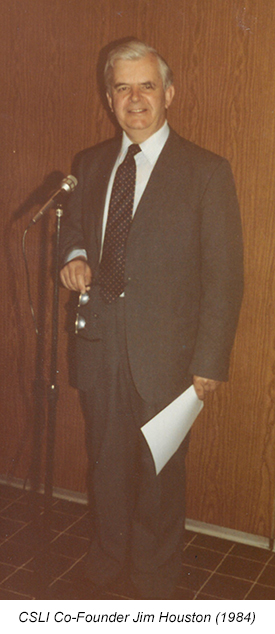 Faith and Law began as a ministry of CSLI in 1987 and eventually developed its own nonprofit status. It brought Christian speakers to Capitol Hill to talk about living the Christian life in the legislative arena and the political world.15 Speakers included Norman Geisler, R.C. Sproul, Ron Sider, Richard Neuhaus, and Chuck Colson. Faith and Law and CSLI still partner occasionally for special events on Capitol Hill.
Faith and Law began as a ministry of CSLI in 1987 and eventually developed its own nonprofit status. It brought Christian speakers to Capitol Hill to talk about living the Christian life in the legislative arena and the political world.15 Speakers included Norman Geisler, R.C. Sproul, Ron Sider, Richard Neuhaus, and Chuck Colson. Faith and Law and CSLI still partner occasionally for special events on Capitol Hill.
Conferences and Symposia
During Lindsley’s time as President, CSLI continued to offer a variety of conferences, lectures, and symposia. One highlight was a conference titled C.S. Lewis: Life and Thought, presented in September 1995. Conference speakers included Douglas Gresham, Earl Palmer, and David Allen.
Master’s Degree Program with Seminaries
A major initiative during Lindsley’s time as President was the creation of a unique graduate program where CSLI, in conjunction with Reformed Theological Seminary (RTS) and Trinity Evangelical Divinity School (TEDS), offered master’s degrees, certificates, individual classes, and auditable classes “to equip the working laity.”16 Classes were offered at churches in the Washington metro area, and students could earn a master’s degree from either of these seminaries.
The program was successful, with fifty to a hundred registered students each year.
A Financial Crisis—and God’s Provision
On the FBI website, there is an article17 that begins:
Hundreds of charities and philanthropic donors were shocked when they saw the front page of the Philadelphia Inquirer on the morning of May 16, 1995. The headlines read, “A bankruptcy shakes world of charities.”
The newspaper article referred to the criminal investigation of John G. Bennett, Jr., and his operation of the Foundation for New Era Philanthropy. The article on the FBI website explains that it was eventually revealed that New Era was nothing more than a nationwide Ponzi scheme.
CSLI was seriously impacted by the New Era foundation debacle. While the Institute’s seminary program was successful, it also necessitated raising more money to keep it sustainable. CSLI had received a commitment for a large donation from another foundation that was dependent on matching money from the New Era foundation. Since the New Era foundation turned out to be a Ponzi scheme, CSLI did not receive the anticipated, committed funding.
A CSLI Board meeting was held, and the Board decided to turn the seminary program over to RTS and TEDS and return to a focus on individual discipleship and conferences.
The need to pay off a significant unexpected debt created hardship for the leaders of CSLI, including Lindsley and Hiskey. Hiskey, however, has a wonderful story of provision. At a time when $45,000 was needed, Hiskey, driving with his wife in Idaho, felt he should call an old friend of his, a golf professional, to share what was happening. His friend listened to the story and simply said, “I can take care of this for you.” He offered to pay the entire amount. Hiskey recalls that they pulled off the road and wept at God’s provision.18
Looking back, it is notable that, while TEDS decided not to continue long-term with its program, RTS decided to establish a metro Washington campus. Students today can earn a M.Div., M.A. in Religion, and M.A. in Biblical Studies at RTS Washington.
And while the leaders of CSLI could not know it at the time, it would not be long before the Institute would initiate a number of new programs for heart and mind discipleship, including the Fellows Program.
Heart and Mind Discipleship and the Fellows Program: 1998–201019
In early 1998, Tom Tarrants had just completed a period as copastor of Christ Our Shepherd Church in Washington, D.C., and was working on a doctoral program in Christian spirituality. His academic work didn’t require all of his time, so he prayed to God about how he could serve Him in his available hours. As he prayed, Art Lindsley’s name came to his mind, and Tarrants thought he should follow up.
Tarrants made arrangements to have lunch with Lindsley, who encouraged him to get involved with the Institute as a volunteer in the area of discipling or discipleship training. Tarrants accepted the offer and designed a pilot project to take a group through a discipleship program. The project was advertised, and a group was formed. One of the members was Kerry Knott, who years later would become CSLI President. The pilot project was deemed successful, and by late summer Lindsley raised the question of whether Tarrants might be interested in becoming President of the Institute, as Lindsley wanted to devote more time to writing.20
By early October 1998, CSLI’s Board invited Tarrants to become President. The Board asked him for a ten-year commitment, with the mandate of refocusing the Institute to making disciples.
The Institute’s financial position remained poor at this time, and the Board was not able to immediately offer Tarrants a salary. A year and a half later, a small salary was provided, which would later be gradually increased to an amount appropriate for the position and nature of the organization.
Building the CSLI Staff
As Tarrants stepped in to the role of President, he and Lindsley were the only full-time staff members. The Institute didn’t have any support staff. He prayed for God to provide a secretary and asked several churches to put an announcement about the need in their bulletins.
A few people responded, and Tarrants recalls that Karen Olink was “just clearly the person for the job.” Olink was totally devoted to the work of the Institute and stayed for twelve years. Tarrants states that “we could not have succeeded without her help; she was just a key person.”
Another key person who came to CSLI around this time was Bill Deven, who had retired as Vice President of Finance and Administration with The Ryland Group and then served as Executive Vice President of Search Ministries for twelve years. After a meeting with Tarrants, Deven volunteered to do the Institute’s books and financial reporting; he would serve as Treasurer for fifteen years.
The Beginning of the Fellows Program
As President, Tarrants immediately set out to refocus the Institute toward the discipleship of working professionals. Of particular significance, in 1999 CSLI began the Fellows Program, a yearlong discipleship commitment that helped believers experience heart and mind transformation.
Eleven men participated in the first class, among them, Kerry Knott. Tarrants and Lindsley served as teachers and mentors. Based on the reports and evaluation material from all of the Fellows, the program seemed to be effective. The next year, CSLI made the program available to women, in a separate cohort.
The program was scalable, so over time there would be multiple groups of men and multiple groups of women. As Tarrants remarks, upon looking back, “It just kept growing.” Those who went through the program recruited their friends with zeal.
CSLI’s 25th Anniversary
In 2001 CSLI used a special logo for its publications, featuring the phrases “Celebrating 25 Years of Ministry” and “Soli Deo Gloria.” For the Spring 2001 edition of the C.S. Lewis Institute Report, Tarrants wrote an article titled “Happy Birthday C.S.L.I.!” He noted that, like many of God’s works, the Institute had seen changes since its founding. He rejoiced in recent theological conferences and events, writing,
Perhaps most significant is the role the Institute has played in the theological and spiritual formation of some of the area’s men and women through the C.S. Lewis Fellows Program. Through a year-long study series and mentoring, the Fellows are challenged to make their faith in Christ a genuine reality in their personal and public lives, touching all sectors of business, government, and education.
In that issue, Tarrants also introduced a new member of the CSLI staff, Jim Beavers, a former Headmaster of Trinity Christian School in Fairfax, Virginia. His initial title at CSLI was Executive Director, which was later changed to Director of Communications.
New Publications
In 2001 the Institute’s quarterly teaching magazine, Knowing and Doing, was launched. It was a retitled and enlarged version of the Report, a publication initially designed to provide brief ministry updates, which had been expanded over time. Knowing and Doing offers a wide variety of articles from nationally recognized leaders in discipleship, spirituality, theology, apologetics, and cultural analysis.
In 2003 a monthly one-page publication, Reflections, was launched. It provides a key message for daily living from the thought of C.S. Lewis.
Ministry to Area Pastors
Tarrants, who, as previously noted, had been a pastor in the Washington metro area, began a quarterly luncheon for local pastors. CSLI also conducted pastors’ retreats. Over the years, the Institute’s ministry to pastors has expanded to become an important component of its servant ministry to the church.
Executive Vice President Position
As CSLI grew in the new millennium, improved management was needed. During the summer of 2003, Tarrants approached Tom Simmons21 about the possibility of coming to the Institute as Executive Vice President. Simmons was a Managing Director of a venture capital firm. He had regularly attended programs sponsored by the Institute for about a decade, beginning with a John Stott conference.
Simmons interviewed with members of the CSLI Board and came to the Institute as Executive Vice President in January 2004. Very quickly he improved organizational management and financial stability.
Continuing Growth in the Fellows Program
During the first several years of the Fellows Program, enrollment was limited to twelve men and twelve women. In 2004 CSLI increased enrollment, and by 2009 forty-seven Fellows were enrolled in the Washington, D.C., program.
The Fellows Program also expanded outside of the Washington metro area. The Atlanta Fellows Program was launched in 2005, when one of the Fellows, Patrick Litre, moved to Atlanta and was willing to help with the start-up. In addition, in 2009, the Annapolis Fellows Program began under the leadership of Jim Phillips.
Transition
As Tarrants approached completing his ten-year commitment to being President of CSLI, he asked the Board to consider a successor. He believed that his gifts had been right for the period served but that new gifts were needed as the Institute continued to expand.
For reasons partly related to the Great Recession, the selection of a new President was put on hold for a couple of years. In early 2010, the Board selected Kerry Knott as CSLI’s new President, with Tarrants remaining at the Institute as Vice President of Ministry.
Exponential Growth: 2010–2014
When Kerry Knott became President of CSLI, he had a long history of senior-level government and corporate experience. He had been Senior Vice President, Government Affairs at Comcast; Senior Director, Government Affairs at Microsoft; and Chief of Staff for House Majority Leader Dick Armey.
Knott had been actively involved with CSLI for many years. As noted earlier, he was in the first Fellows class in 1999. He had served as Chairman of the Board of CSLI for seven years.
Knott had a passion for discipleship and a special interest in helping CSLI expand to additional cities in the United States and abroad. Under his leadership, CSLI launched a Decade of Discipleship in 2011, an intense focus, for at least ten years, on making disciples.
Video resources were developed, including The C.S. Lewis Study Program and The Basic Apologetics Course taught by Art Lindsley.
Knott brought on Joel Woodruff in 2011 to serve as Vice President of Discipleship and Outreach and Director of the Fellows Program in Washington, D.C. Woodruff helped oversee the creation of a new DVD-based small group resource titled Heart and Mind Discipleship. He also supervised a revision of the Year One and Year Two Fellows Program curriculum with the goal of strengthening its evangelism and apologetics components. He developed standard operating procedures and protocols, so that the Fellows Program and other Institute programs could be replicated more easily in other cities. A City Director’s coaching program was also established to provide accountability and encouragement to the new leaders of the Institute.
Randy Newman was brought on in 2014 as Senior Teaching Fellow for Apologetics and Evangelism. Woodruff and Newman developed a small group evangelism program titled The Conversational Apologetics Course, which is now being used successfully by churches and ministries around the country.
During Knott’s nearly five years as President, CSLI launched Fellows Programs in six additional locales: Central Pennsylvania, Chicago, Cincinnati, London, NE Ohio, and Seattle. The number of Fellows participating in the program annually nationwide jumped from one hundred to nearly four hundred in a few short years.

The Institute’s ministry to pastors also grew during Knott’s tenure, with Tom Tarrants tasked with developing this important ministry. Eventually, out of the CSLI pastor outreach, the pastors themselves launched a group called ReachDC that is now partnering with CSLI to train churches in evangelism.
Knott had a special interest in helping parents disciple their children. Under his leadership, CSLI launched the Aslan Academy. In an article titled “Announcing the Aslan Academy: Intentional Parenting to Disciple Our Children,” Knott wrote:
What do I desire most for my children? For them to grow in the knowledge and love of their Savior Jesus Christ and articulate, defend, and joyfully live out their faith in whatever calling God has for them. Helping disciple our children on this journey should be a parent’s urgent priority.
The Aslan Academy was designed to help parents teach and equip their children to become effective disciples of Jesus. Among other things, Knott developed an easy-to-follow roadmap, “The Seven Step Plan,” to help parents get started with the Aslan Academy program.
Knott’s visionary leadership also saw the Institute develop a global presence, as CSLI resources were shared with mission organizations in Asia and Europe.
The C.S. Lewis Institute Today
After fulfilling his five-year commitment to the Board, Knott passed the baton to Joel Woodruff who took over as President on January 1, 2015. In part due to the solid foundation laid by Knott, and by the grace of God, the Institute in 2015 was able to open up new Fellows Programs in Virginia Beach and Loudoun County, Virginia. Plans are underway for the launch of Fellows Programs in Charlotte, North Carolina, and Belfast, Northern Ireland, in 2016.
The C.S. Lewis Institute looks forward to celebrating forty years of heart and mind discipleship in 2016 and continued ministry in the years to come as the Lord calls us to “come further up and further in.”
|
Notes: |
|||

J. Edward Glancy
AttorneyJ. Edward Glancy, Attorney, was a member of the C.S. Lewis Institute Fellows Class of 2002-2003 and completed the Year Two program the following year. He graduated from Franklin and Marshall College in 1977 and received a J.D. from Duke University School of Law in 1980. Ed served as an attorney with the National Highway Traffic Safety Administration for 32 years, most of that time as Senior Attorney. He currently serves the C.S. Lewis Institute part-time as a volunteer.


Joel Woodruff
President, C.S. Lewis InstituteJoel Woodruff, President, C.S. Lewis Institute, has worked in higher education, “tent-making,” nonprofit administration, and pastoral ministries in Alaska, Israel, Hungary, France, and Northern Virginia. He served as Dean of Students, Chaplain, and Professor of Bible & Theology at European Bible Institute, where he helped train Europeans both for professional ministry and to be Christian leaders in the marketplace. Prior to joining the Institute, he was on the leadership team of Oakwood Services International, a nonprofit educational and humanitarian organization. He is a graduate of Wheaton College, earned his M.Div. from Gordon-Conwell Theological Seminary, and has a doctorate in Organizational Leadership from Nova Southeastern University. As a Parish-Pulpit Fellow, he studied Biblical Backgrounds & Archaeology in Israel for a year.

Recommended Reading:
C.S. Lewis – A Profile in Faith (free e-Book)
Want to deepen your understanding of one of the world’s greatest Christian authors and apologists? The C.S. Lewis Institute is giving away copies of its e-book C.S. Lewis: A Profile in Faith, a complete history of author and scholar C.S. Lewis. The e-book features an in-depth look at Lewis’s life, his teachings, his family and those who influenced him. Click here to download
 COPYRIGHT: This publication is published by C.S. Lewis Institute; 8001 Braddock Road, Suite 301; Springfield, VA 22151. Portions of the publication may be reproduced for noncommercial, local church or ministry use without prior permission. Electronic copies of the PDF files may be duplicated and transmitted via e-mail for personal and church use. Articles may not be modified without prior written permission of the Institute. For questions, contact the Institute: 703.914.5602 or email us.
COPYRIGHT: This publication is published by C.S. Lewis Institute; 8001 Braddock Road, Suite 301; Springfield, VA 22151. Portions of the publication may be reproduced for noncommercial, local church or ministry use without prior permission. Electronic copies of the PDF files may be duplicated and transmitted via e-mail for personal and church use. Articles may not be modified without prior written permission of the Institute. For questions, contact the Institute: 703.914.5602 or email us.
-
Recent Podcasts
The Road Back – Trevor Lancon’s Story
by Trevor Lancon, Jana Harmon on November 15, 2024Deeply involved in his church’s youth group, Trevor...Read More
-
From Politics to Pampers
by Michelle Morgan Knott, Aimee Riegert on November 15, 2024
-
An Unexpected Change – David Westerhoff’s Story
by David Westerhoff on November 8, 2024
-
Recent Publications
Will You Be Ready?
by Thomas A. Tarrants on October 23, 2024Tom Tarrants gives insights on how we can...Read More
-
Should Christians Be Involved with Politics?
by Kerry A. Knott on October 1, 2024
-
Isn ’t Atheism Based on Scientific Fact Whereas Christianity is Based on “Faith”?
by Cameron McAllister on September 1, 2024
0
All Booked
0.00
All Booked
0.00
All Booked
23169
ADVENT CALENDAR: The Amazing Prophecies Fulfilled by the Birth of Jesus Christ
https://www.cslewisinstitute.org/?event=advent-calendar-the-amazing-prophecies-fulfilled-by-the-birth-of-jesus-christ&event_date=2024-11-28®=1
https://www.paypal.com/cgi-bin/webscr
2024-11-28

Next coming event
Days
Hours
Minutes
Seconds
ADVENT CALENDAR: The Amazing Prophecies Fulfilled by the Birth of Jesus Christ
On November 28, 2024 at 6:00 amSpeakers
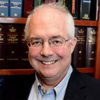
J. Edward Glancy
Attorney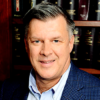
Joel Woodruff
President, C.S. Lewis Institute
Team Members

J. Edward Glancy
AttorneyJ. Edward Glancy, Attorney, was a member of the C.S. Lewis Institute Fellows Class of 2002-2003 and completed the Year Two program the following year. He graduated from Franklin and Marshall College in 1977 and received a J.D. from Duke University School of Law in 1980. Ed served as an attorney with the National Highway Traffic Safety Administration for 32 years, most of that time as Senior Attorney. He currently serves the C.S. Lewis Institute part-time as a volunteer.

Team Members

Joel Woodruff
President, C.S. Lewis InstituteJoel Woodruff, President, C.S. Lewis Institute, has worked in higher education, “tent-making,” nonprofit administration, and pastoral ministries in Alaska, Israel, Hungary, France, and Northern Virginia. He served as Dean of Students, Chaplain, and Professor of Bible & Theology at European Bible Institute, where he helped train Europeans both for professional ministry and to be Christian leaders in the marketplace. Prior to joining the Institute, he was on the leadership team of Oakwood Services International, a nonprofit educational and humanitarian organization. He is a graduate of Wheaton College, earned his M.Div. from Gordon-Conwell Theological Seminary, and has a doctorate in Organizational Leadership from Nova Southeastern University. As a Parish-Pulpit Fellow, he studied Biblical Backgrounds & Archaeology in Israel for a year.



